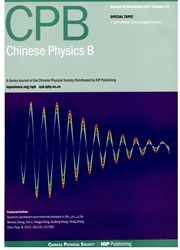

 中文摘要:
中文摘要:
Smoothing by spectral dispersion(SSD) leads to considerable improvement on laser-irradiation uniformity in far field for fusion lasers. Phase modulation in time and spectral angular dispersion(SAD) across the beam introduced by SSD will affect the stimulated rotational Raman scattering(SRRS) gain in the near field. This paper focuses on the influence of SAD on SRRS gain under different laser conditions. Results show that the SAD will aggravate the generation of SRRS when the laser initial additional phase is constant. On the contrary, the SAD can reduce the SRRS gain if appropriate SSD parameters are adopted when the laser initial additional phase is variable. SSD has a certain application prospect in SRRS suppression.
 英文摘要:
英文摘要:
Smoothing by spectral dispersion (SSD) leads to considerable improvement on laser-irradiation uniformity in far field for fusion lasers. Phase modulation in time and spectral angular dispersion (SAD) across the beam introduced by SSD will affect the stimulated rotational Raman scattering (SRRS) gain in the near field. This paper focuses on the influence of SAD on SRRS gain under different laser conditions. Results show that the SAD will aggravate the generation of SRRS when the laser initial additional phase is constant. On the contrary, the SAD can reduce the SRRS gain if appropriate SSD parameters are adopted when the laser initial additional phase is variable. SSD has a certain application prospect in SRRS suppression.
 同期刊论文项目
同期刊论文项目
 同项目期刊论文
同项目期刊论文
 期刊信息
期刊信息
